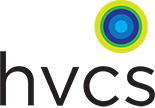Prevention Strategies and HIV Positive Clients
January 10th, 2014, 10 am – 12 pm
During this 2 hour webinar we will discuss strategies to help people living with HIV achieve behavioral changes that can prevent negative health outcomes for themselves and avoid transmission to others.
This Webinar will allow participants to:
Define “primary” and “secondary” prevention in HIV;
Explore current “Best Practices” in Prevention with HIV-Positive clients presented by the Centers for Disease Control and Prevention;
Examine the growing role of HIV treatment in the prevention of HIV transmission;
Discuss the importance of provider client relationship in addressing prevention issues with their HIV positive clients;
Review specific strategies for working with special populations; and
Examine prevention resources and be able to make referrals for prevention services.
Please note that this is a DUAL registration process. You must sign up at BOTH
https://www4.gotomeeting.com/register/597823399

